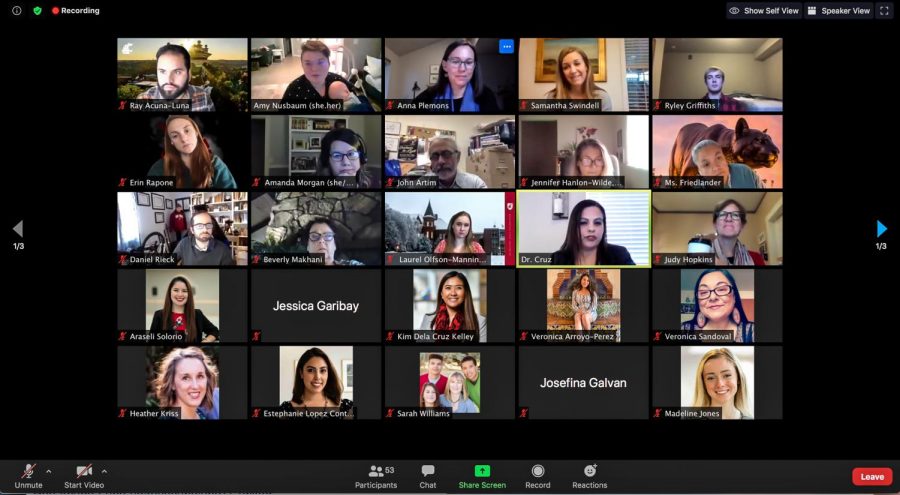Changing syllabi design may lead to improved faculty-student relationships
Syllabi are student’s first impression of class, instructor
Changes to a syllabus’ design and wording does not harm or help a student’s retention of syllabus information.
November 9, 2020
Strong relationships between faculty members and first-generation students open doors for the students’ future success.
A study on syllabus design show that changes to design and wording did not harm or help retention of syllabus information, said Amy Nusbaum, assistant professor at Heritage University, during an event hosted by WSU’s Office of Academic Engagement on Nov. 6.
Samantha Swindell, clinical professor at WSU’s Department of Psychology, said she is not convinced wording does not play a part in a student’s ability to retain syllabus information. She does not know whether the study adequately measured the importance of wording.
Nusbaum and her co-authors found that syllabi design affected how students perceive their professors, Nusbaum said.
“Professors using a prettier syllabus were rated as more kind, creative and approachable,” she said.
She encouraged faculty members to use a more stylistic syllabus and stressed the importance of accessibility.
“Anything [faculty members] can do to make the syllabus more accessible is going to be useful to all students and perhaps disproportionately to first-generation students,” Nusbaum said.
Faculty members can make little changes to their syllabi, which can influence student perception, like saying “student hours” instead of “office hours,” she said.
“There are general things faculty can do to make their classes more inclusive,” said Anna Plemons, assistant vice chancellor for academic affairs at WSU Tri-Cities.
Trust helps develop faculty-student relationships. It is important not to assume students are trying to game the system, Nusbaum said.
“First-gen students don’t know the system,” she said. “You can’t game a system you don’t know.”
Syllabi are the first opportunity instructors have to build successful relationships, Swindell said. Positive faculty-student relationships help students build a network that benefits them after graduation.
“Using [syllabi] to strengthen those relationships … we would be ultimately impacting the long term or larger issue of academic success,” she said.


















Sally Davis • Nov 9, 2020 at 9:48 am
I had never considered that the appearance of a syllabus could have any impact on a student. This article changed my view on a positive way. It is a good idea to make them more attractive!